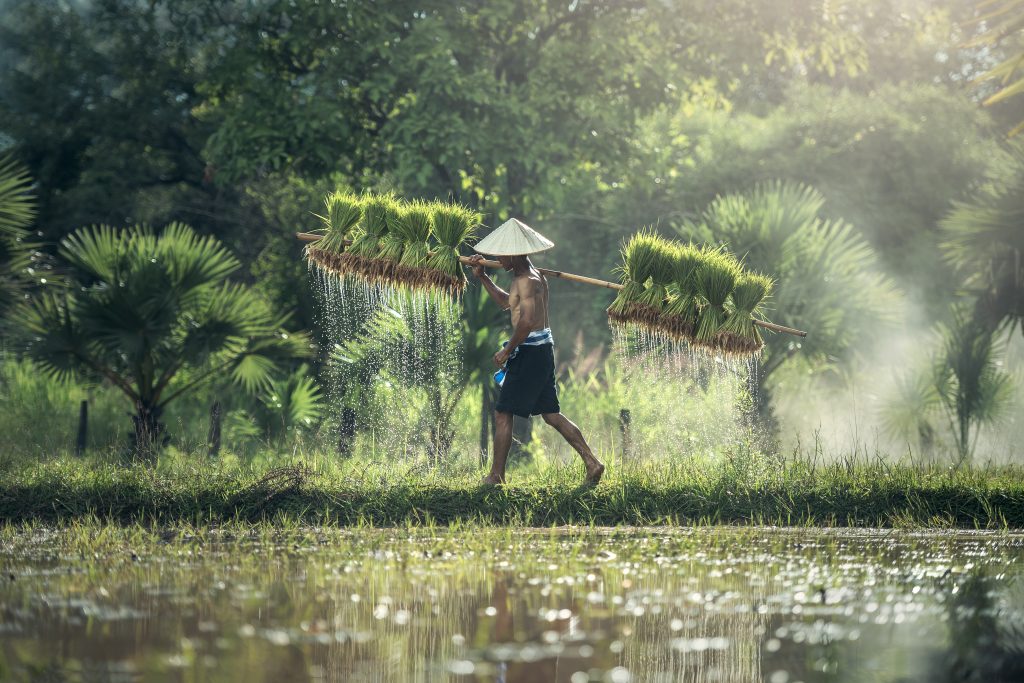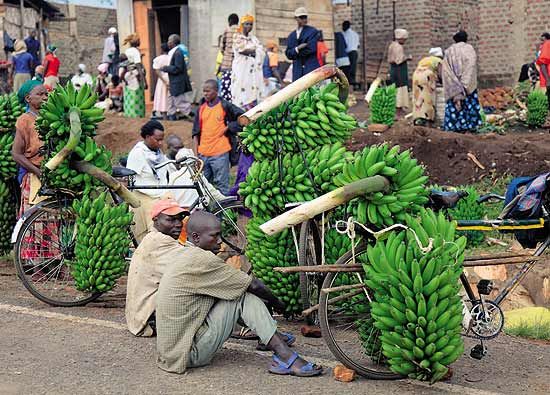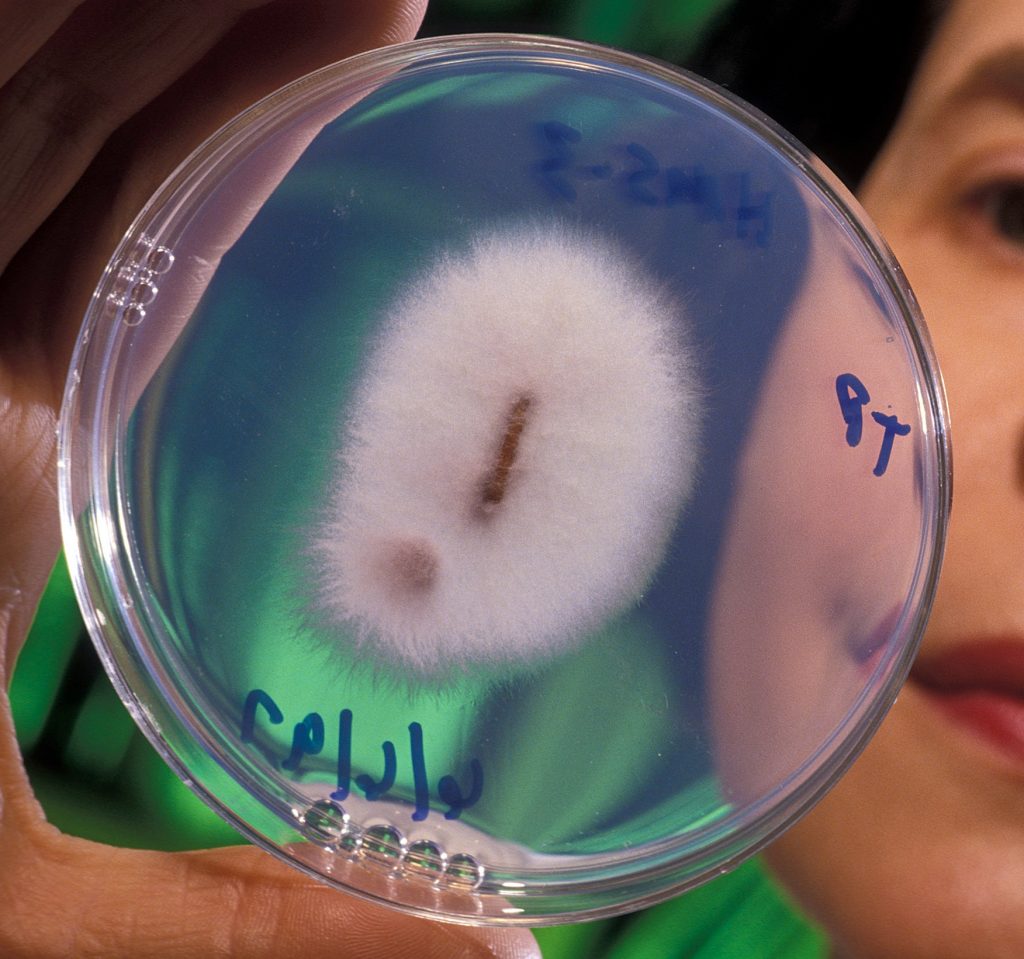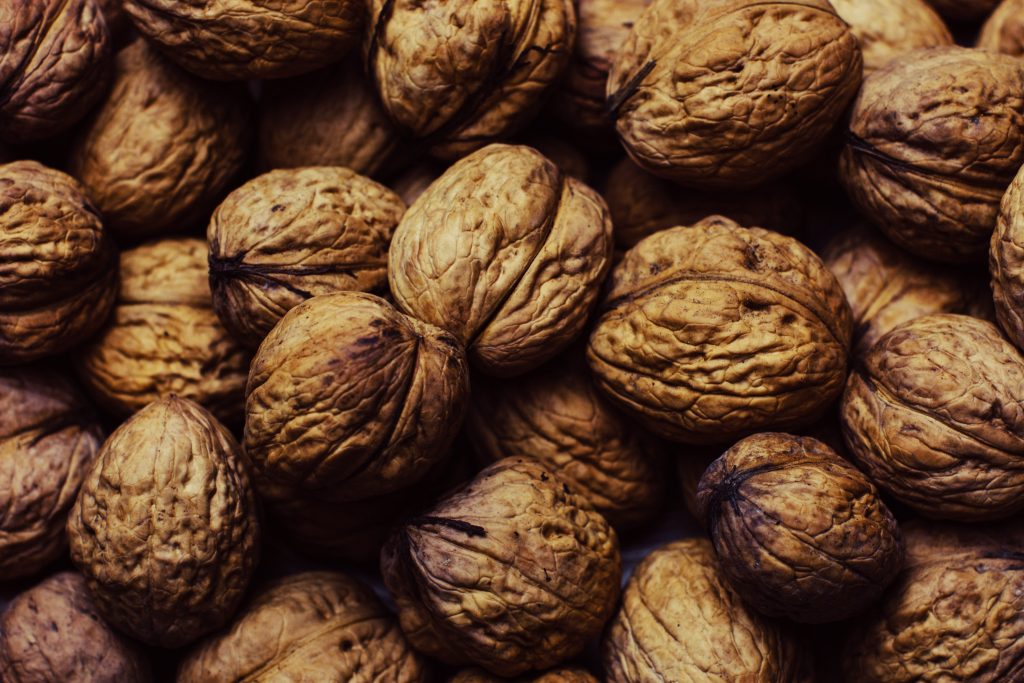CABI and ACIAR sign AUD $2.1 million four-year agreement to steer future collaboration
CABI and the Australian Centre for International Agricultural Research (ACIAR) have signed a four-year agreement worth AUD $2.1 million to guide future collaboration that will fight a range of crop pests and disease which threaten global food security.
Unregistered herbicides use rampant among smallholders
By Alex Abutu. Reblogged from SciDev.Net. African rice smallholders are increasingly using low-quality, unregistered herbicides because of inadequate capacity of governments to enforce strict monitoring of national pesticides regulations, a study says.
Plantwise successes revealed in Impact Story Competition
The successes of smallholder farmers in Nepal, Uganda and Kenya – thanks to help from CABI – have become the focus of the Plantwise Impact Story Competition won by three extension workers who helped them combat crop pests and diseases. Debraj Adhikari, a Senior Plant Protection Officer from Nepal, plant doctor Mubunga Joshua from Uganda…
Update: New Pest & Disease Records (05 February 2019)
We’ve selected a few of the latest new geographic, host and species records for plant pests and diseases from CAB Abstracts. Records this fortnight include the first report of grapevine yellow speckle viroid-2 infecting grapevines, the first report of hop stunt viroid infecting strawberries in China and the first report of bean yellow mosaic virus…
Using rice to filter pesticide runoff
Rice has been a staple food crop for millions of people for hundreds of years. This important crop is now a major part of 20% of the world’s population, with it being grown on every continent except Antarctica.Whilst rice is known to be an important part of our diet, recently published research has shown how…
Amid global soil crisis, governments struggle to reach farmers
By Fatima Arkin. Reblogged from devex. To help tackle nutrient deficiency and plastic pollution in India’s soils, the country has one of the best knowledge delivery systems and trained human resource power in agriculture research. And yet, over 59 percent of the farming households receive no assistance from either their government or the private sector,…
Update: New Pest & Disease Records (04 January 19)
We’ve selected a few of the latest new geographic, host and species records for plant pests and diseases from CAB Abstracts. Records this fortnight include the first report of Fusarium oxysporum as the causal agent of wild saffron corm rot disease in Iran, a report on two new hosts of Prillieuxina winteriana (Ascomycota) and the…
Agricultural pest control by bats in Madagascar
A new study has brought to light how native bat species in Madagascar are playing an important role in the control of agricultural crop pests. If more attention and information was brought to this, zoologists from the University of Cambridge believe that bats could reduce the financial strain on farmers for chemical pesticide use as…
Update: New Pest & Disease Records (20 December 18)
We’ve selected a few of the latest new geographic, host and species records for plant pests and diseases from CAB Abstracts. Records this fortnight include the first report of Polyphagotarsonemus latus in Saudi Arabia. The first report of Rhizoctonia solani from parthenium weed in Malaysia and a report on the Asian walnut moth in Turkey.










